Your Stories
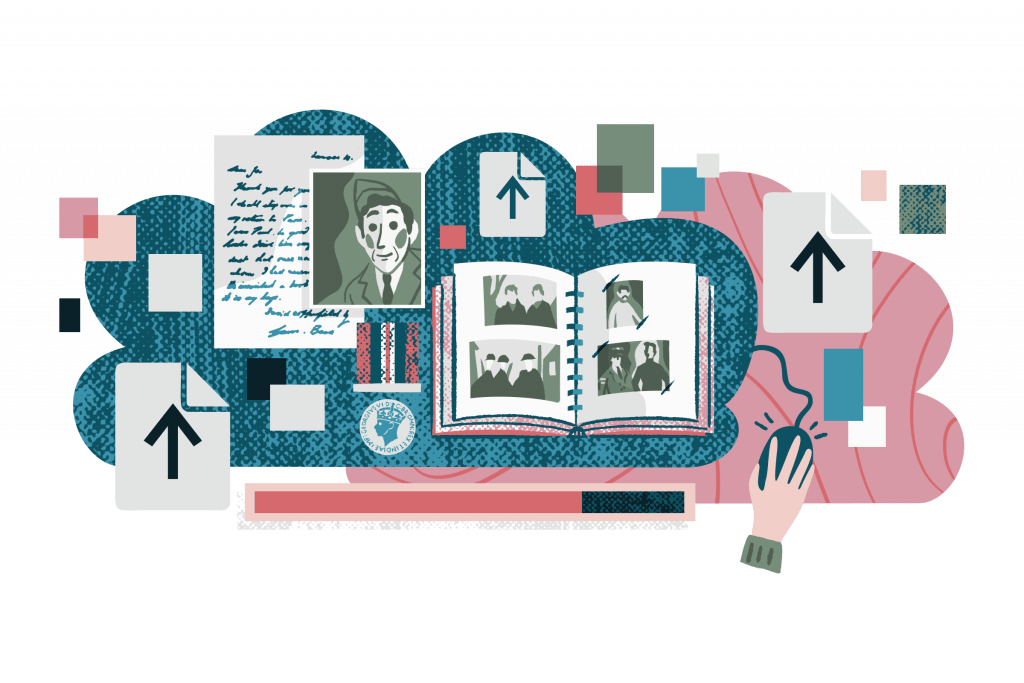
This is a place to share your stories of the Second World War.
Perhaps you have an object or a photograph that tells a personal story of the Second World War? Or maybe there’s still a Second World War site in your community?
If you send us a photograph and some information about it, we’ll aim to include it. A number of the stories here come from participants in our outreach programme.
Please note: we may edit your story and we can’t undertake to put up all stories received.
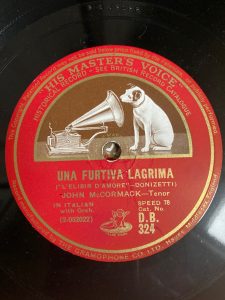
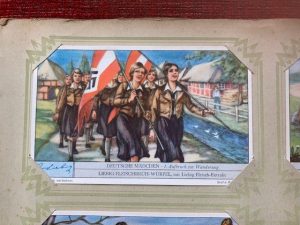
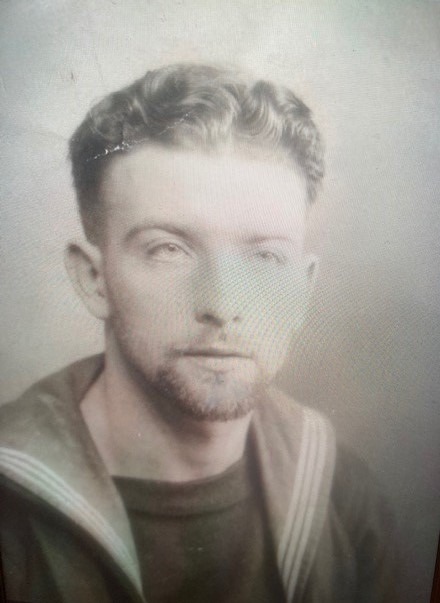
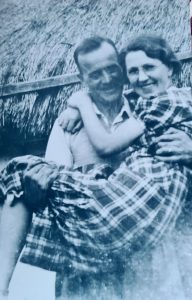
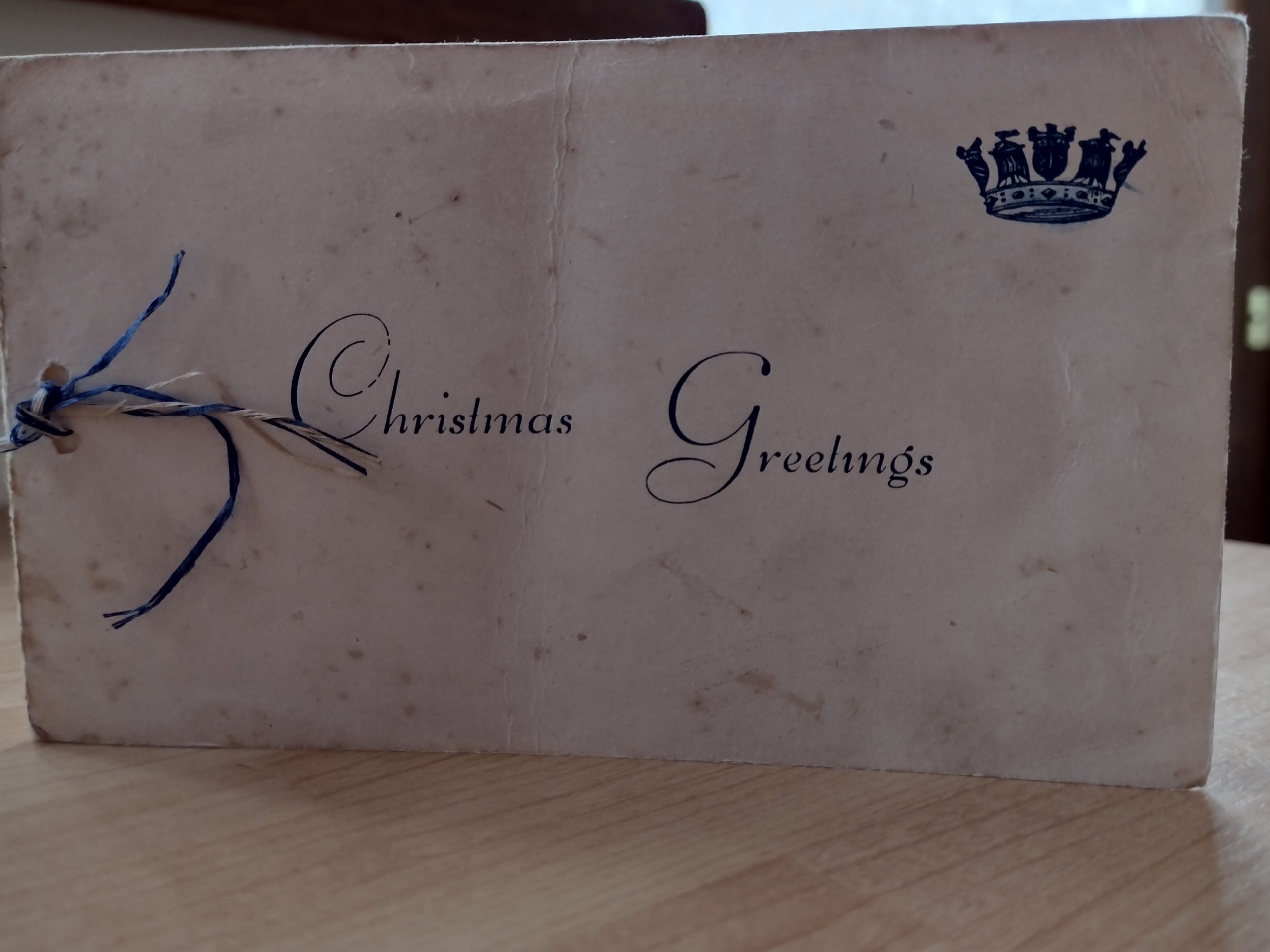
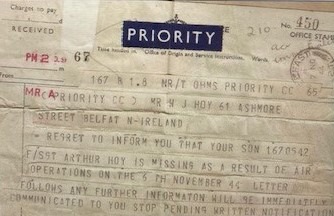
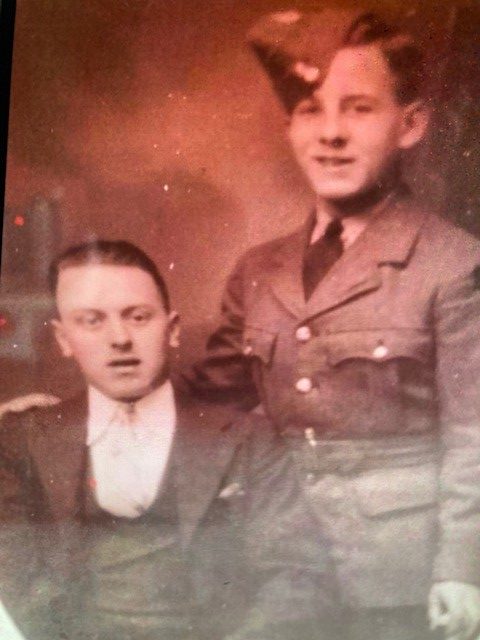
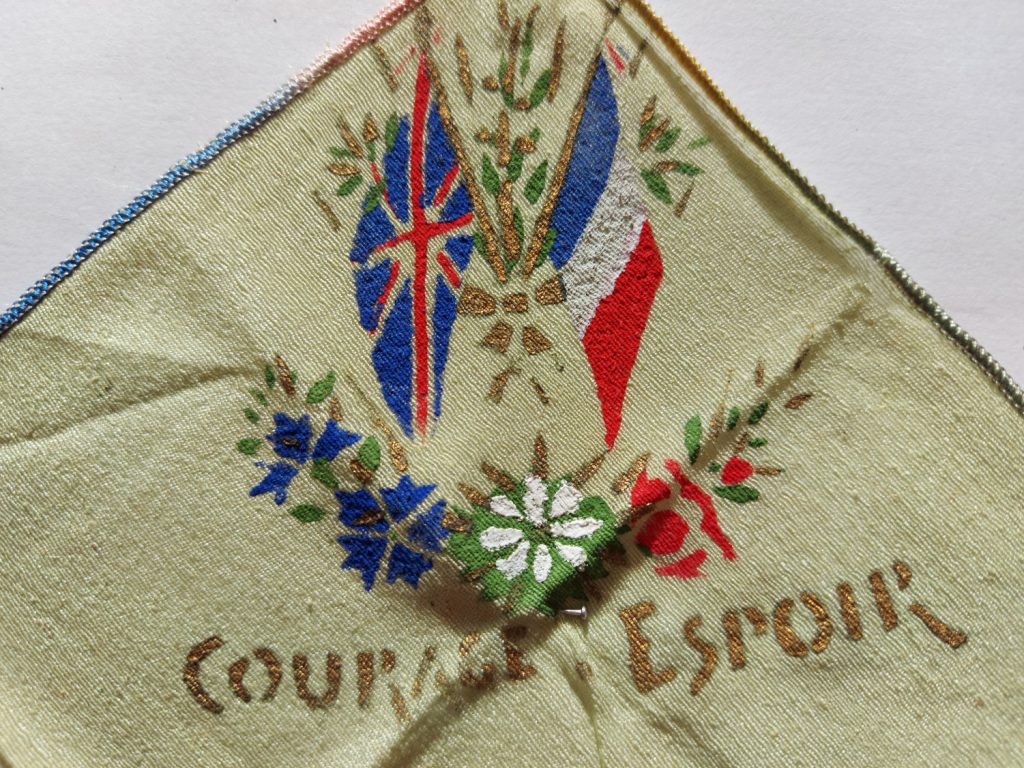
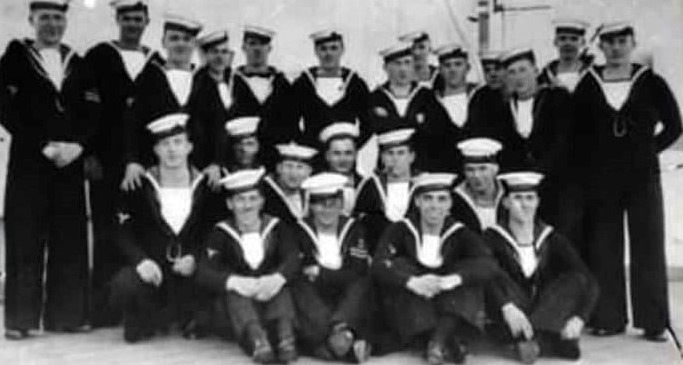
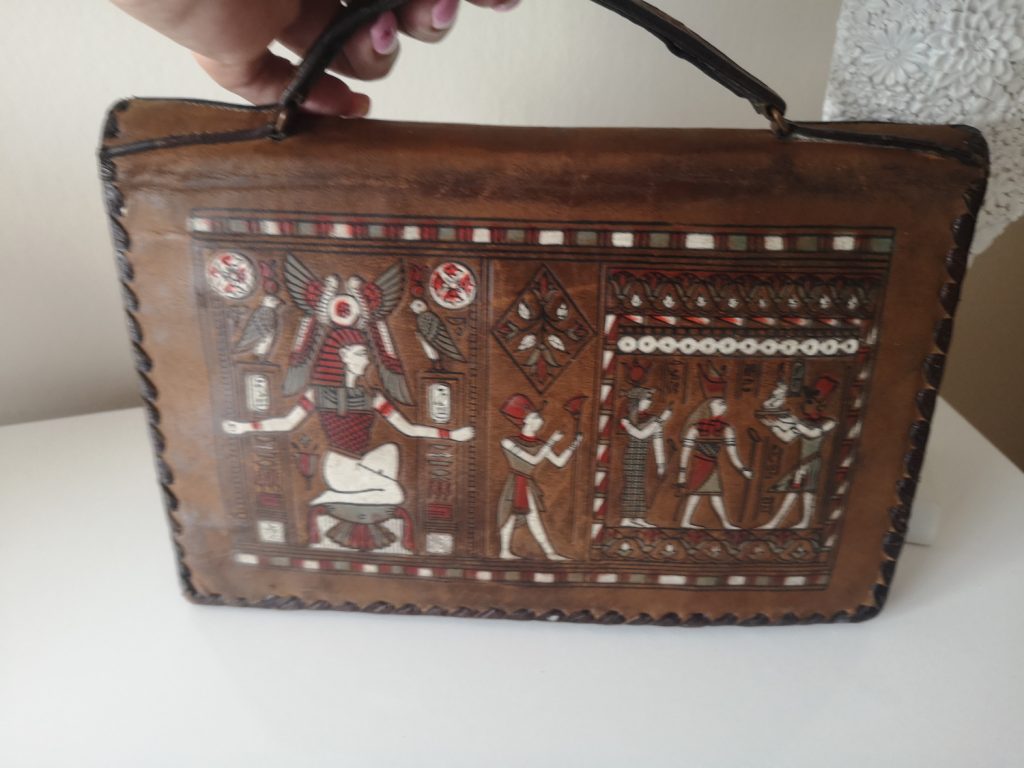
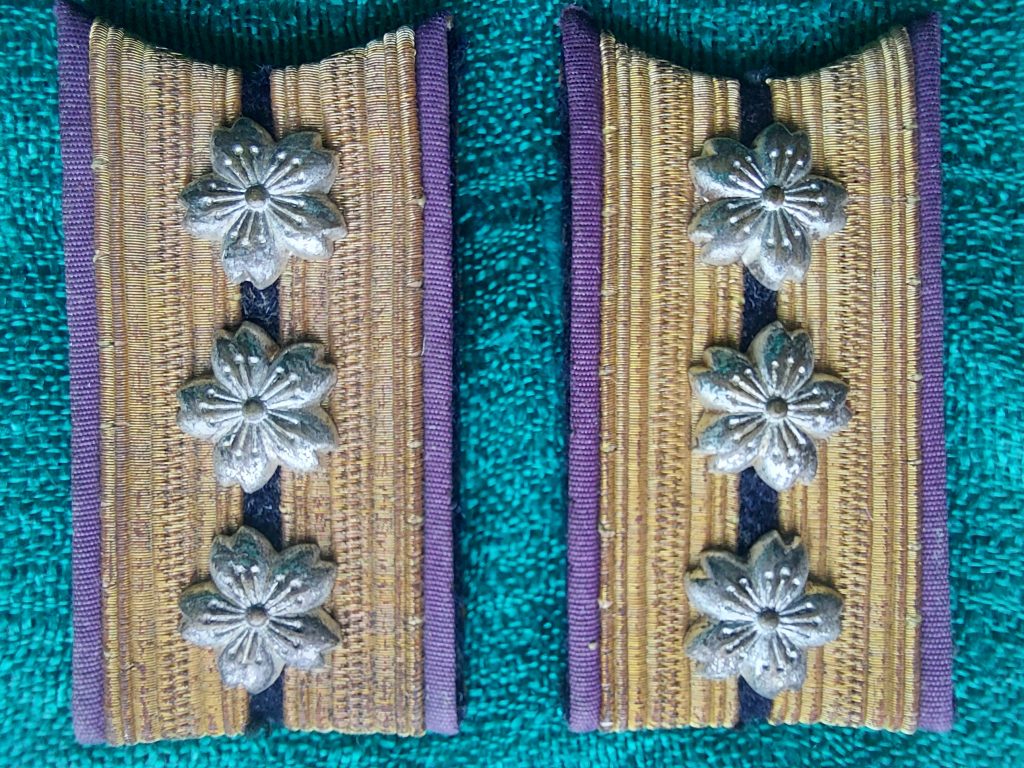
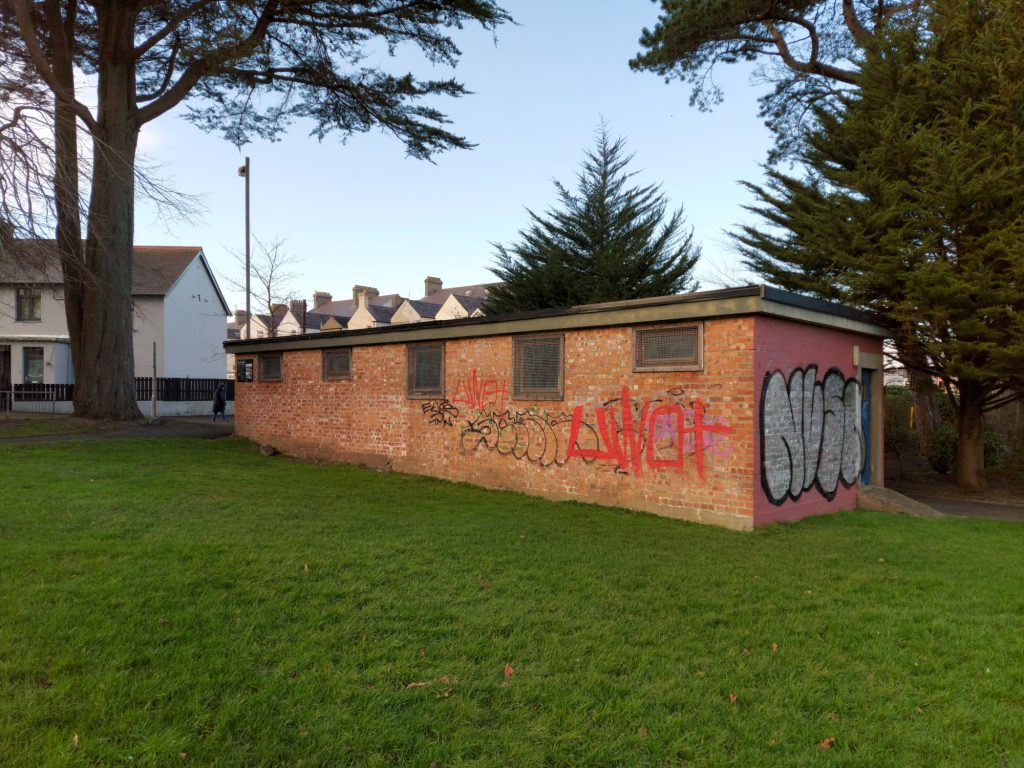
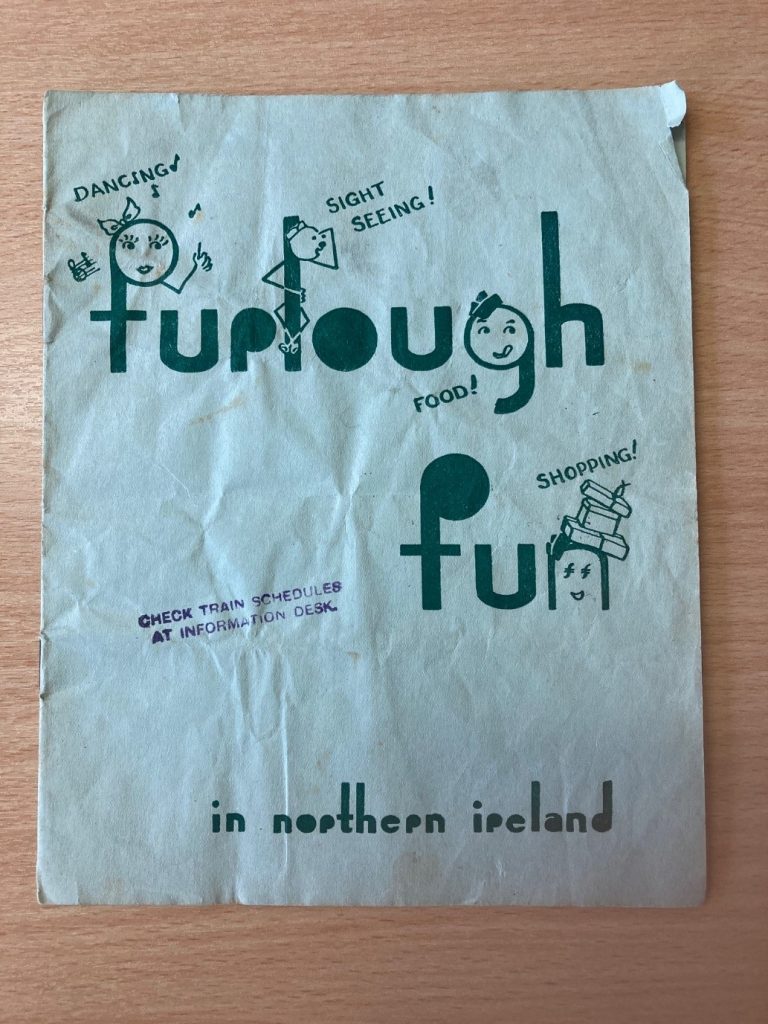
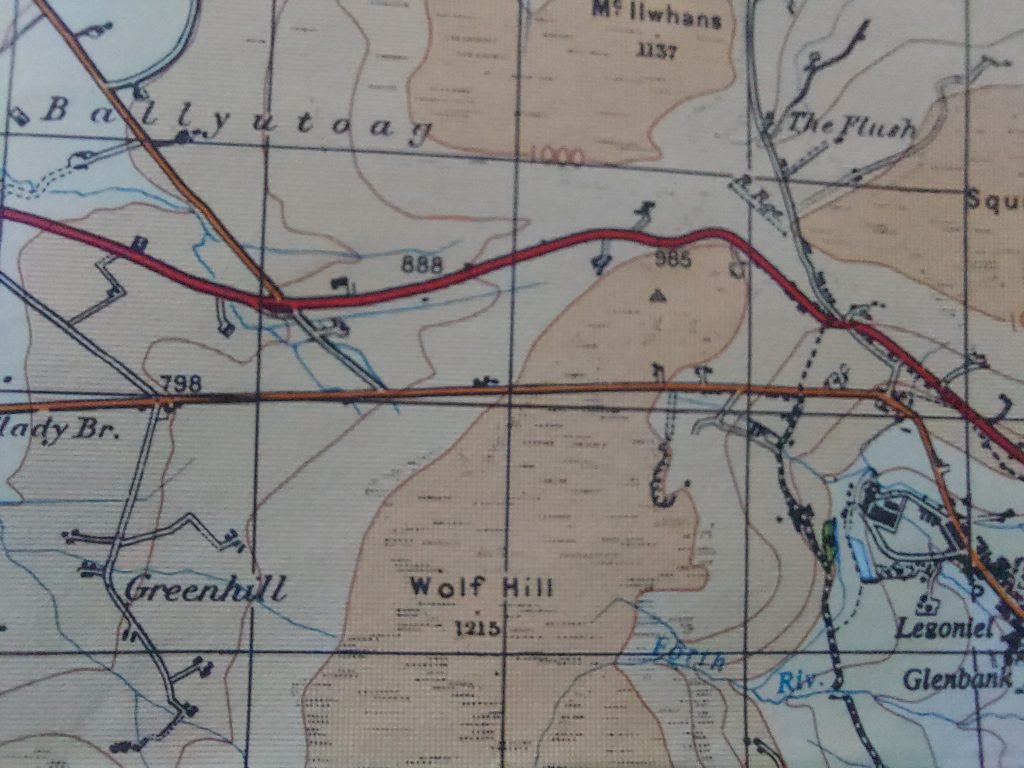

Ken, a young sailor on a destroyer guarding Atlantic convoys between Londonderry and Newfoundland used to spend his home leave with us. He was in charge of radar anti-submarine detection. He would send us a post card before he arrived saying ‘Lovely syrup pudding!’ He’d leave his 78rpm gramophone records with us and allowed me to play them. I was about 12 and this started my love of opera.
Richard Clarke
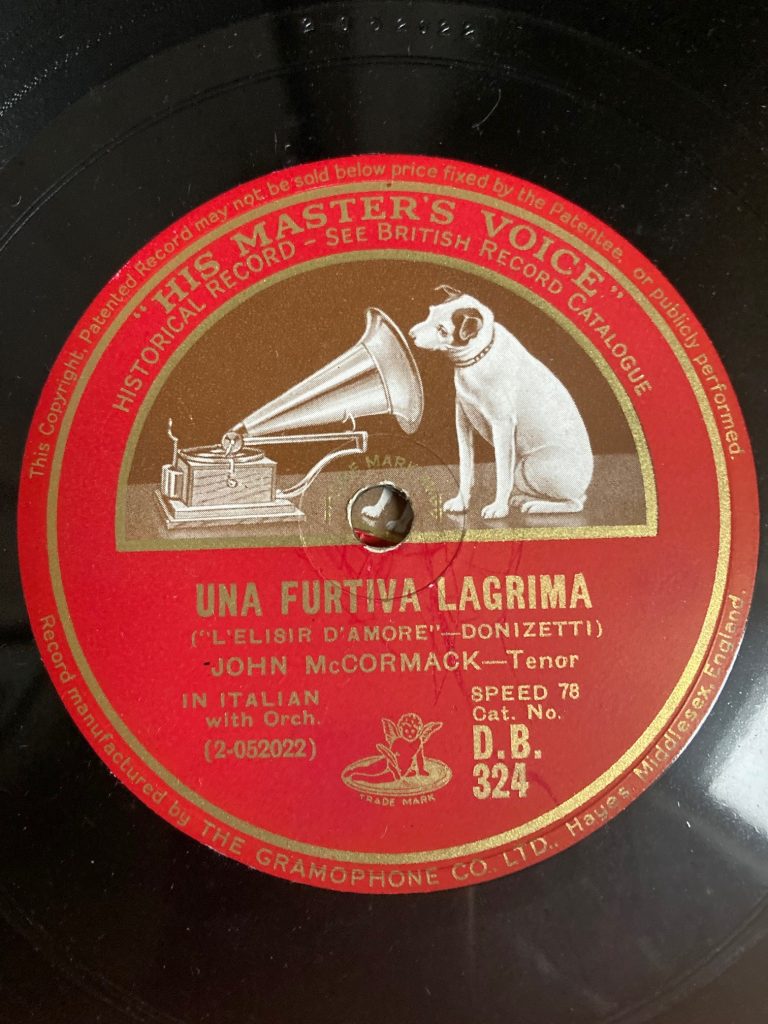
Children collected these cards produced by the meat extract company Liebig-Bilder. In 1947 and 1948 three albums of cards were given by ‘Daddy’ to his children Laurie, Brian and Michael. They still include a picture of ‘German girls – going hiking’ carrying Nazi flags, as well as scenes of ‘picturesque Ireland’ that include ‘the Giant’s Causeway, County Antrim’.
Patrick Campbell
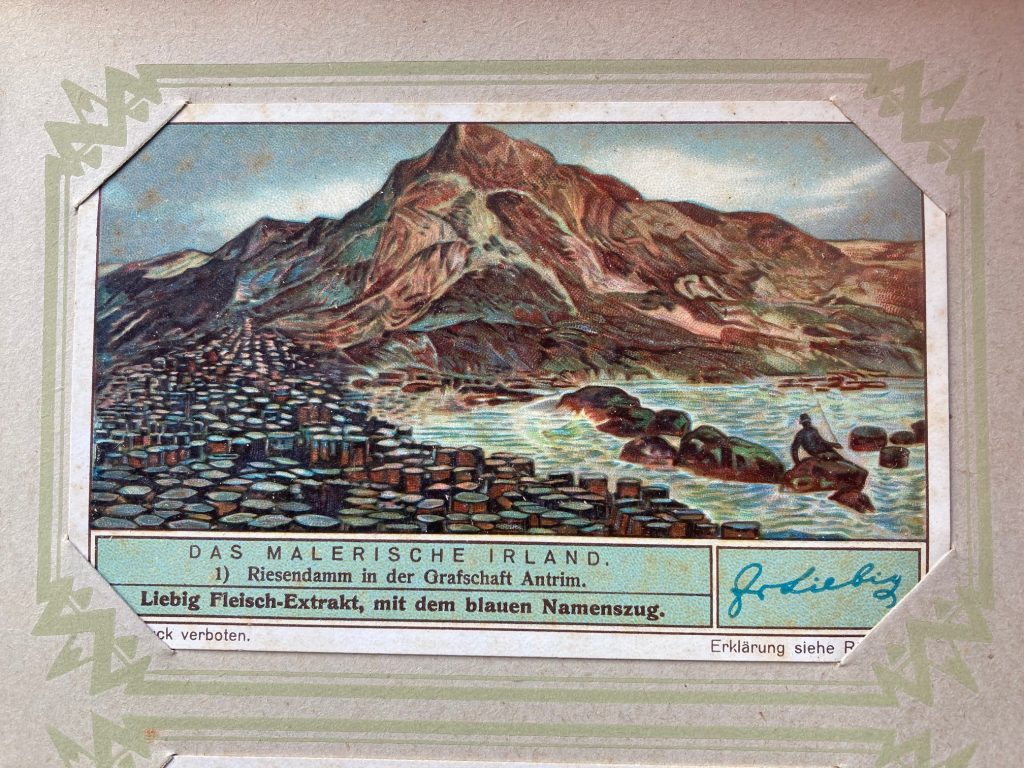
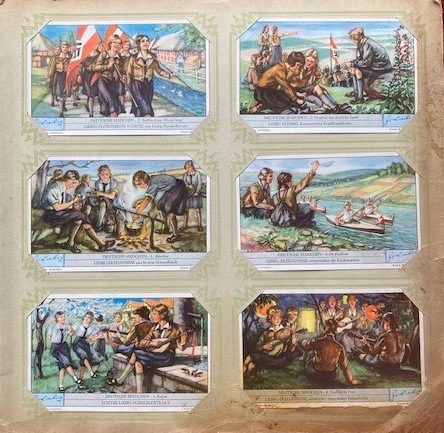
My father James McNeil served on HMS Ark Royal which had a number of near misses but was finally torpedoed on 13 November 1941. They sent a telegram to say he was ‘missing presumed dead’, but he was picked up by a fishing boat, and a second telegram came later to say that he was alive. The photo shows us after the war with my mother.
June Wilson

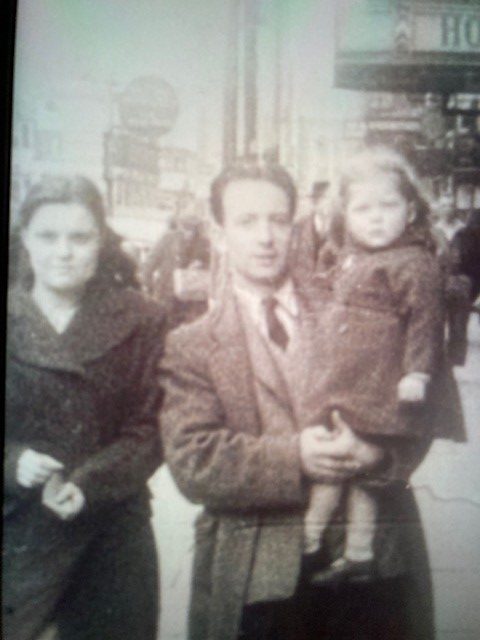
A German submarine U-107 torpedoed the HMS Manistee in Feb 1941 south of Iceland, killing my grandfather Jock Allison. The photo shows him with my grandmother Isabella. Jock never saw his son, Robert, my father, who was born in May 1941. The U-107 submarine was later sunk off the Bay of Biscay by a Short Sunderland plane that was built in Belfast and stationed in Lough Erne.
David Allison
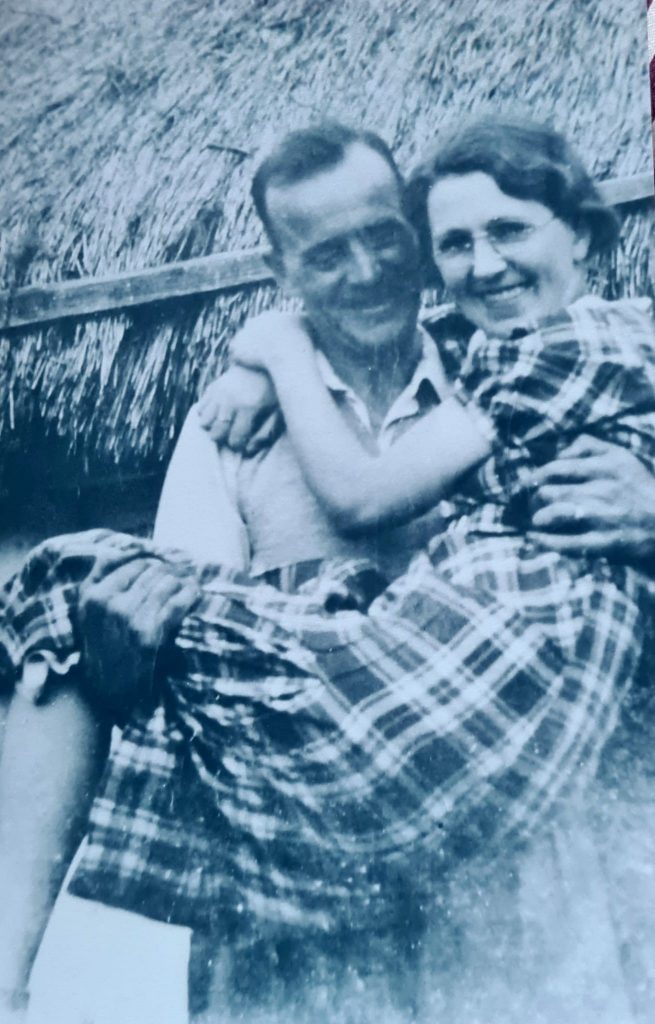
My uncle Hugh Ennis sent this Christmas card home from the submarine HMS Varne.
Pat Carlin
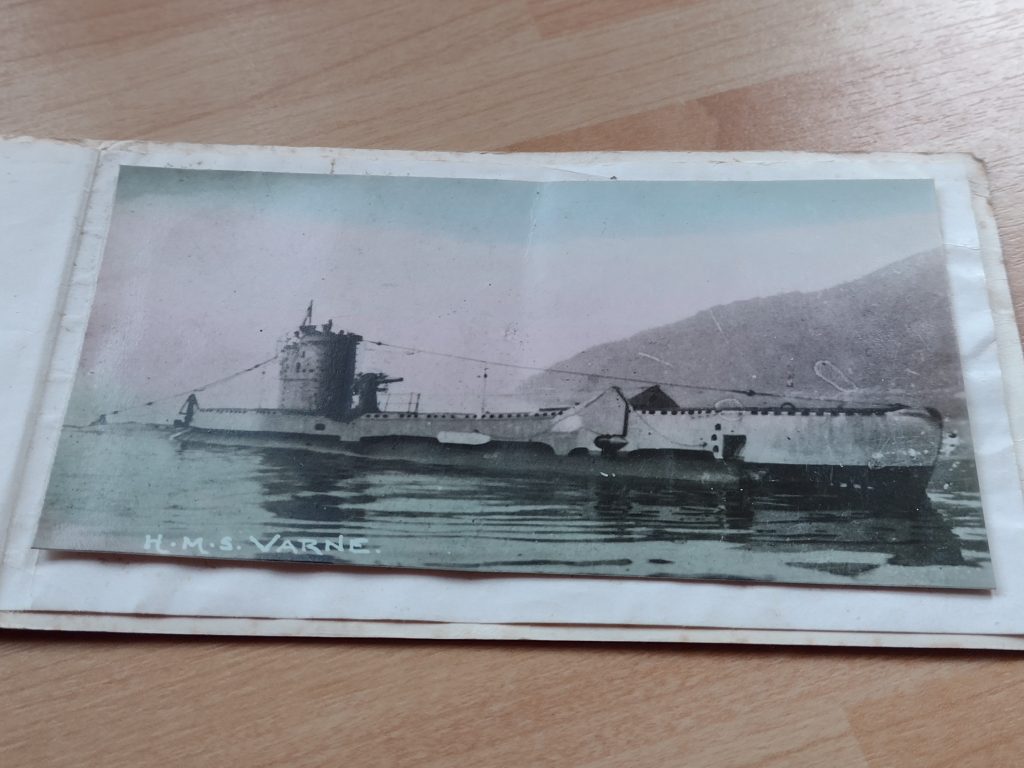
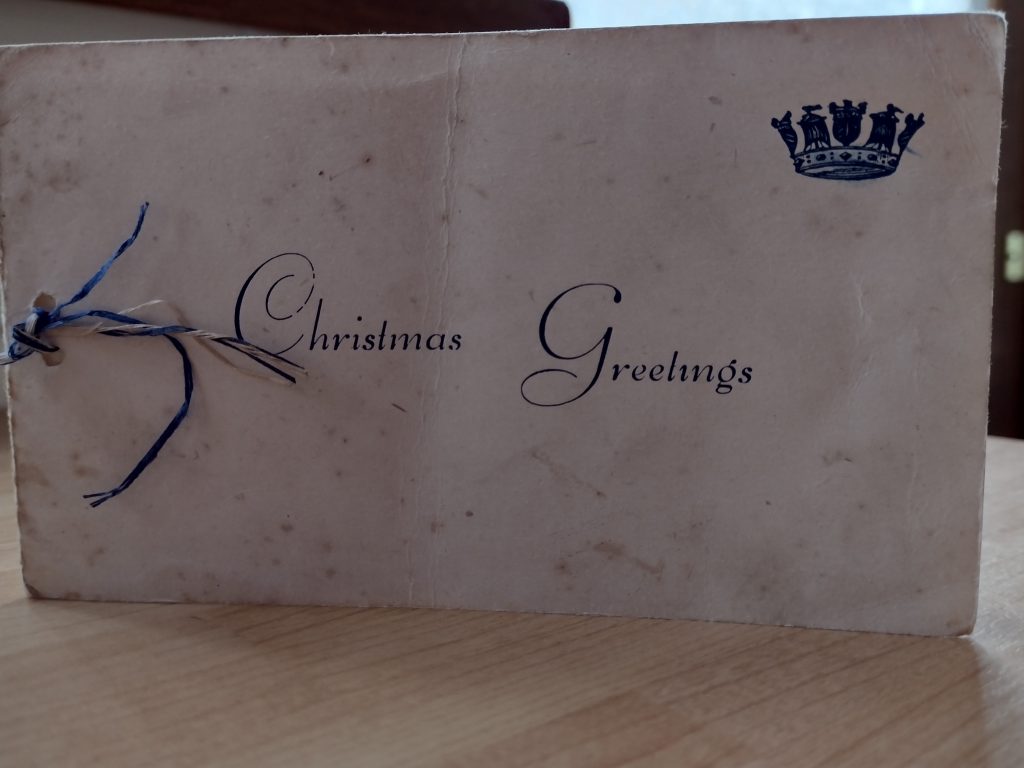
My uncle Artie Hoy was shot down in his plane over Germany. Years later when I was given a German penpal at school, I sent a letter explaining why my father didn’t want me to write. My penpal found my uncle’s grave and sent us a photograph of it. So I was allowed to have a German penpal as long as my grandad didn’t know.
Eleanor Jamison

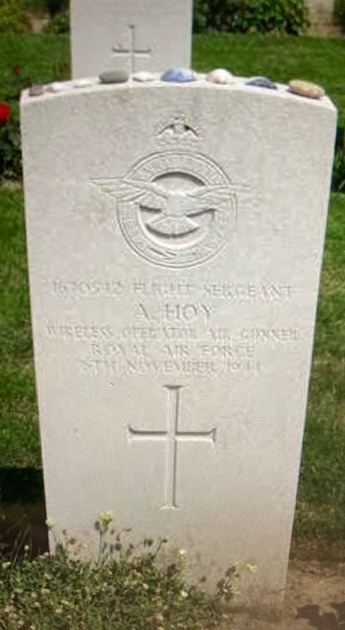
Jackie, my father, was only 14 when he joined the Air Force. As he was small he was made a gunner. One time his plane was shot down and he only realised he’d been wounded when he saw blood in his boot and the sea going red. He was still only 17 when he fought in Palestine.
Cathy Lundy

In 1940 during the Battle of France my father Ted Leach drove a petrol lorry to refuel the tanks. He stayed for 10 days with a family near the Belgian border, who gave him this handkerchief saying ‘Courage, Hope’. On the retreat to Dunkirk, he managed to get his lorry back, past burning villages and dive-bombing Stukas, only to have it destroyed in case it fell into enemy hands.
Stephen Leach
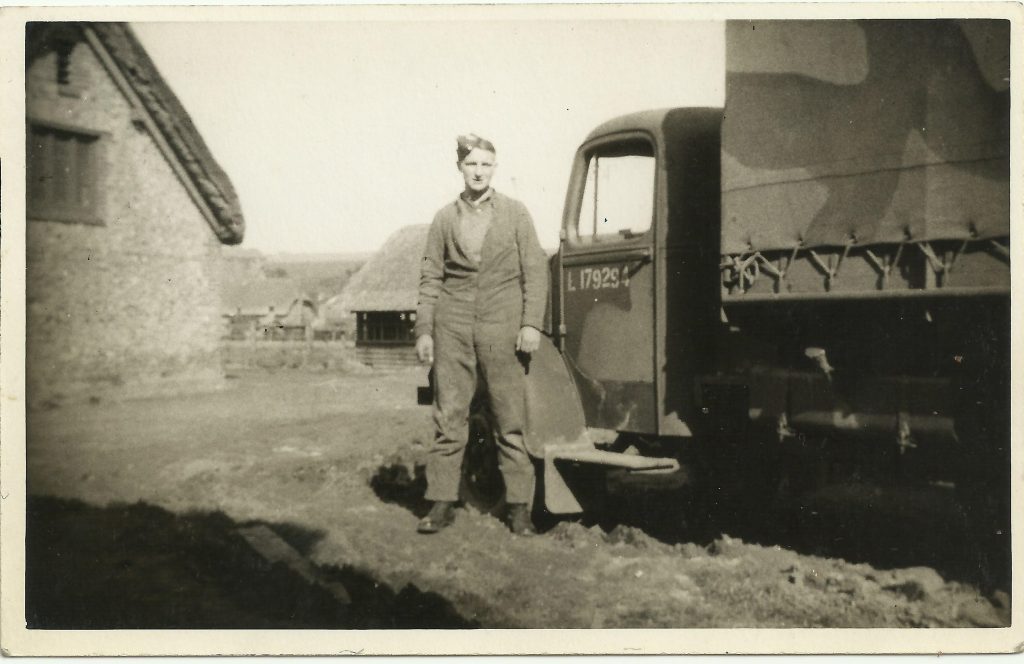

My mum was expecting a baby when HMS Hood, my dad’s ship, was bombed in the south Atlantic. There were lots of men from the Shankill and only three survivors. My granny didn’t want to tell my mum but she overheard her telling a neighbour. Mum threw herself on the bed in despair. She later lost the child and always blamed herself. My dad survived as he had been transferred to the HMS Somali the week before.
Molly Otley

This handbag was brought back from Alexandria for my grandmother by my grandfather. My mother remembers him dressed in his uniform, leaving to return to sea, waving from the back of a bus. He served on HMS Valiant at the Battle of Cape Matapan in the Mediterranean alongside Prince Philip. After the war he joined the merchant navy.
Fern Maxwell
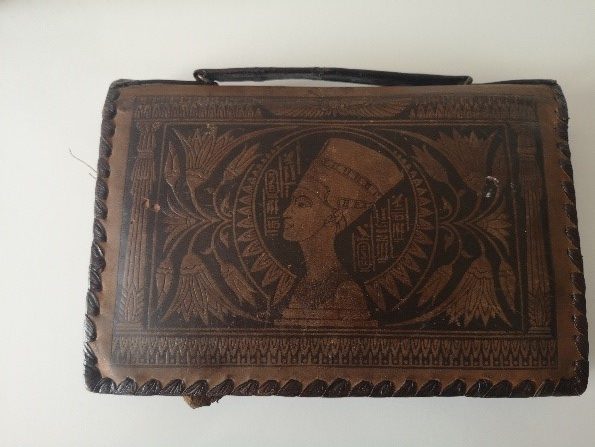

In 1942 my father, a naval officer and engineer, was sent to Harland and Wolff to convert a ship into an aircraft carrier, HMS Unicorn. For a year he travelled up by train from Bangor. He then served on HMNZS Gambia, which fired some of the last shots of the war, and was present at the Japanese surrender in September 1945. These shoulder straps belonged to a ‘Japanese Engineer Officer’.
Rosemary Drew

This air raid shelter in Bangor is one of 26 built in 1940. It’s on Park Drive on the edge of Ward Park. Bangor mostly escaped the bombing but was hit in September 1940 and April 1941. The shelter is said to be hard to demolish and after the war it was used by Bangor Tech and the North Down Cycling Club.
Grace Vernon

My wife’s family were friendly with an American GI who was based in Northern Ireland during the Second World War. He kept in touch over the years and later sent some keepsakes back to them. They included this leaflet with ideas on how to spend a couple of days’ leave (the original meaning of furlough).
David Rimes
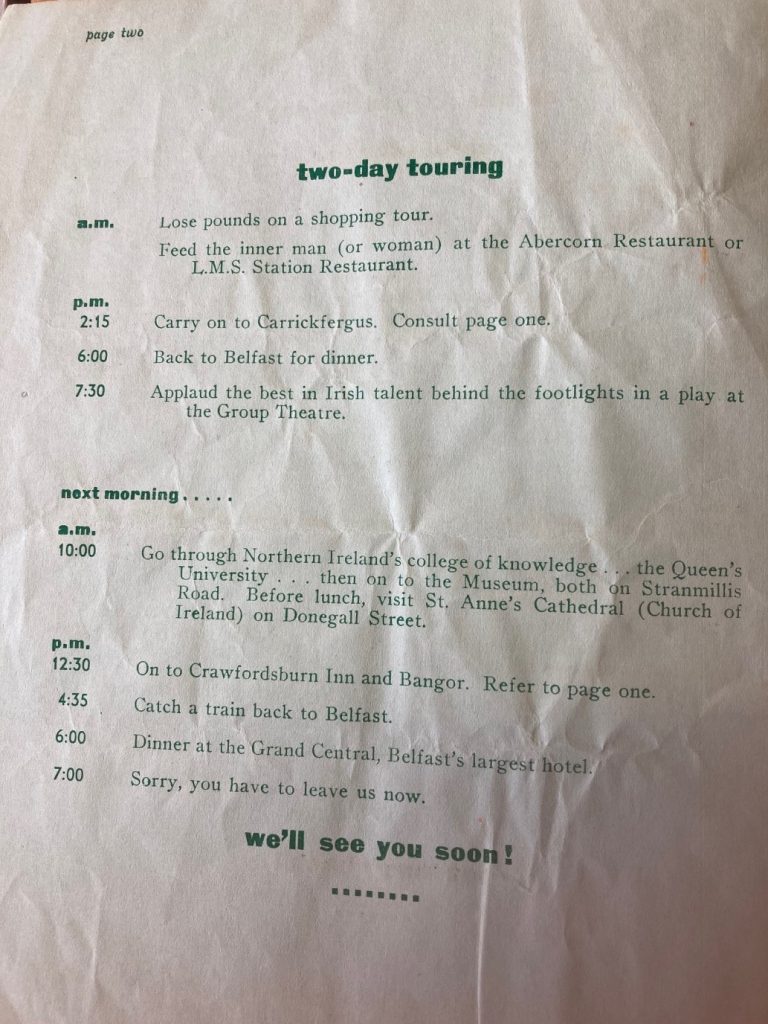
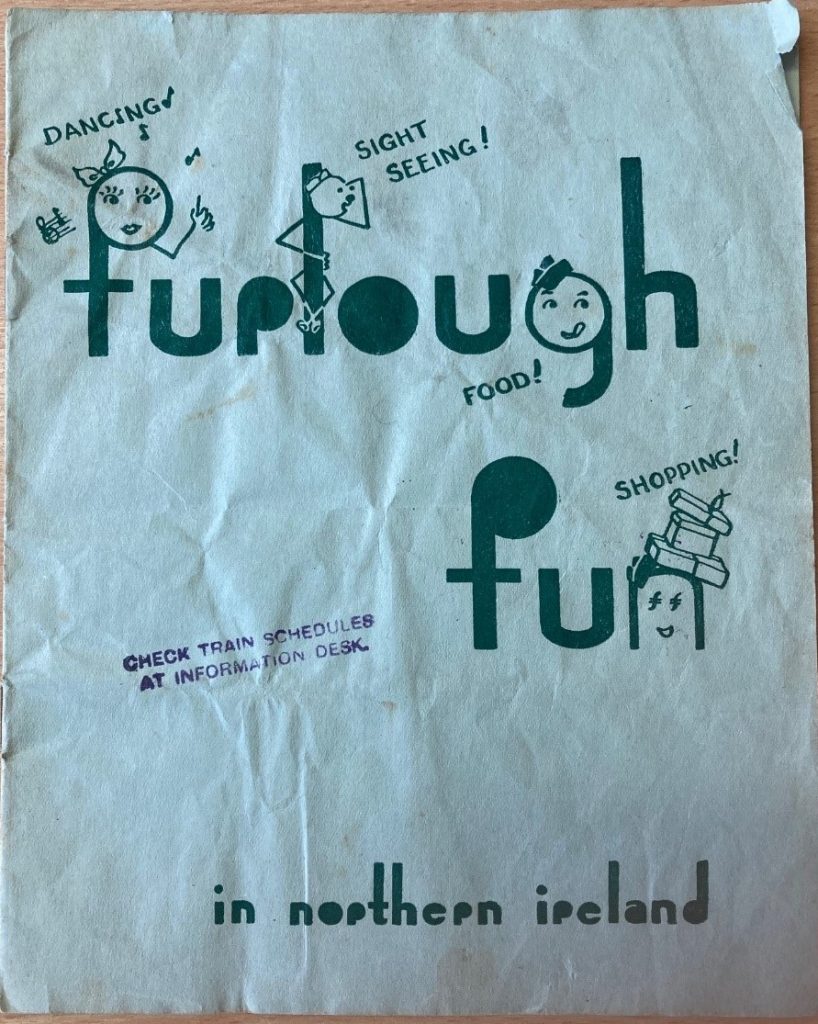
I remember walking home from school in the countryside with a friend and my brother during the war. And this lorry pulled up beside us and two men in boiler suits said ‘Hop in’.
We didn’t want to, but they insisted, and I was in the front and the others were sitting in the back on those sort of bench things. We were scared and at one point they pulled up at a pub and said they were going in. My brother shouted from the back, ‘Quick let’s get away! So we jumped out and all ran home across the fields. And we shouted to our Mum and Dad, ‘We got picked up by the Germans but we managed to get away’.
It turned out they were English airmen and we’d just never heard English accents before and thought they were Germans. They were stopping to buy us lemonade. When they found we were gone they drove the lanes looking for us and then asked in the pub if there were local children nearby and they called at our house with the lemonade!
Dorothy McCann
